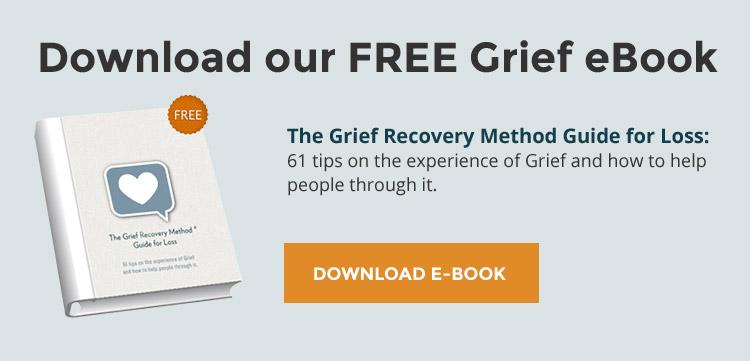
It would be wonderful if grief was like math. When you look at a series of numbers that you are adding together, the answer is always the same. Two different people can add the same list of numbers, and the answer will always be the same, assuming they added correctly. Once you learn the basics of addition, finding the answer is not difficult.
Grief is not the same for everyone!
Unfortunately, grief is not like that. Grief is based on emotions. Grief is based on your personal relationship to who or what was lost. Each person and relationship is different, which means that how we deal with each loss will be different as well.
This is particularly evident when you look at family members who experienced the same loss. It is not unusual to hear one family member say of another, “they are just not grieving right”! Since each relationship is different, even in the same family, each person’s response to that loss will be different as well.
One family member may throw themselves into their work, even seeking overtime hours, as a way to take their mind off the loss. Another member of the same family may find it hard to get out of bed in the morning. Does this mean that one is right and the other wrong? No, it just means that they are dealing with their grief differently.
In cases of parents who have lost a child, you might find one family member that brings up the child’s name in nearly every sentence, while the other avoids voicing that name. Does this mean that one parent cared more about the child than the other? No. Again, this is just another example of different coping mechanisms.
This is the trouble with defining grief: everyone responds differently. This may be based on the examples presented to them as a child. It may be due to the perceived differences of how they think they need to respond as a man or woman. It is also due the differences in our individual relationships to who or what was lost from our lives.

Just because others respond differently, does not mean that they are not hurting as well.
Unfortunately, many people are not aware that each of us responds differently to each loss, and there is often a perception that others in the family did not care as much as we did. This is one of the reasons that some families seem to fall apart after a loss.
Rather than fighting over how others are coping or arguing over who is hurting the most, a better solution would be to accept that each is hurting and coping in their own private way and that the best thing to do is take action to move forward.
This sounds easy on the face of it, but requires a change of mindset. It involves changing a familiar behavior pattern of assuming that we are right in how we respond to situations and that others who respond differently are wrong. It requires a focus on taking action to be able to enjoy fond memories of the past, rather than worrying about a future that is different than the one we had planning. It takes courage!

Taking the right action can make things better for everyone.
Grief recovery is not something that you can do alone. It requires finding a Grief Recovery Specialist to assist you in either a one-on-one setting or in a group. This will offer you the opportunity to put voice behind your feelings, as part of taking recovery action, without fear of analysis, criticism, or judgment.
While you might think that you can simply buy a Grief Recovery Handbook and work on it together as a family, we often find that there is a fear of how others might respond to what you feel you need to say. That fear may come from responses you have had in the past when expressing those feelings. That fear will likely cause you to hold back from honestly saying the important things that must be said as part of taking recovery action.
Working with a Specialist to guide you through this process, whether one-on-one or in a group, will provide you with a safe environment to move through the emotional pain of this loss. If you elect to join a group, you will still have the opportunity to express your feelings out of earshot of your other family members, so that there will be no worry as to how they might interpret what you honestly need to say.
The key thing to remember is that everyone’s grief is different, even with a shared loss, and that rather than letting that pain hinder ongoing relationships, you have the option of taking grief recovery action.
You might also wish to look at
The Best Grief Definition You Will Find

























Comments
Penny Sirjane
Lizzy
I know this is a very old post Penny but that kind of pain has no expiration date. I'm just a stranger who found herself on this page and I thought I'd just leave a note here saying I'm very sorry for your loss. I pray that memories of your daughter have brought some healing, no matter the level. May God bless you.
Karen Rohls, Certified Grief Recovery Specialist
Michelle
Lizzy
Michelle. I am very sorry for your loss. I pray that one day it will get easier. May God carry you through all difficult paths and seasons.
stephen moeller, grief recovery specialist
stephen moeller, grief recovery specialist
Add new comment